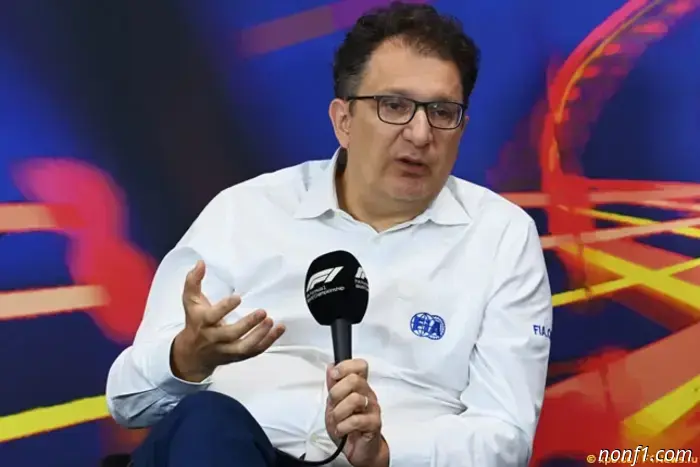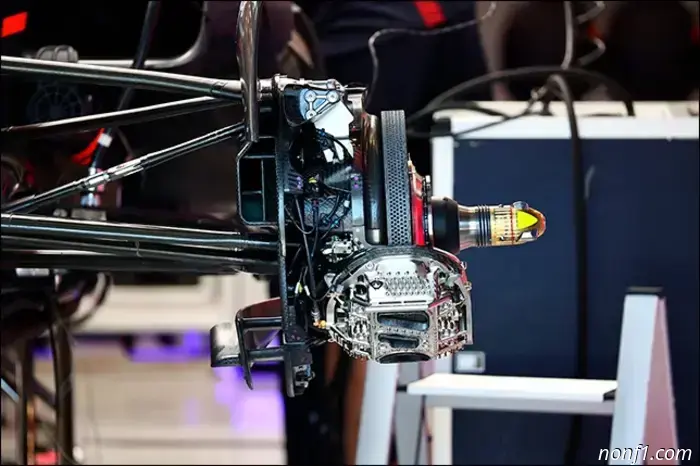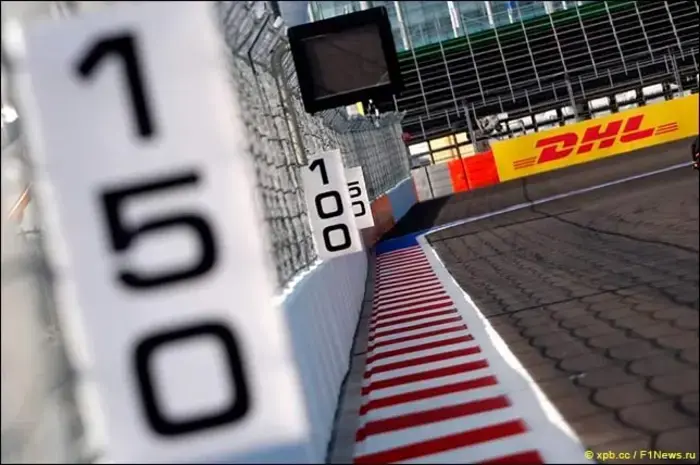Pirelli celebrated its 500th Grand Prix in a special way.
Pirelli decided to mark both its milestone — the 500th Grand Prix — and Formula 1’s 75th anniversary in a special way: the Italian tyre company’s press office produced a special episode of the video podcast Box Box Box devoted to these two events.
The hosts were Damon Hill, the 1996 world champion, and British journalist Tom Clarkson, who usually conducts FIA press conferences on race weekends, and the guests included Stefano Domenicali, President of Formula 1, Zak Brown, Chief Executive Officer of McLaren Racing, Ross Brawn, former Sporting Director of Formula 1, Mario Andretti, the 1978 world champion, Jerry Bruckheimer, producer of the film F1 The Movie, and Giovanni Tronchetti Provera, Executive Vice President of Pirelli.
They all shared memories and also talked about today’s Formula 1.
Domenicali’s career in motorsport began more than 30 years ago as a junior economist in Ferrari’s finance department, but already three years later he became the Sporting Director of the Scuderia, then team manager, and in 2007 he became its head.
Stefano Domenicali: “From the very beginning of my time with this team I learned how to work with people, how to get the most out of them, how to build a cohesive unit by bringing together different cultures so the team could work efficiently. I had the honour of working with Jean Todt and Luca di Montezemolo, who inspired everyone with their dedication, passion, attention to detail and the way they rallied the team around them. Michael Schumacher made an incredibly important contribution; under him the team changed its approach to work.”
Ross Brawn: “When I started my career, Formula 1 teams were very small, but gradually, as technology and the complexity of tasks increased, it became necessary to involve more and more people, including from other fields. For example, I started as a mechanic in Formula 3, making tools. When I joined Williams in 1977 there were 11 people working there, and today there are more staff even in the catering department. During my career safety standards have changed radically: in the late ’70s F1 used aluminium chassis and a driver’s legs sat ahead of the front axle and were essentially unprotected. But many drivers have lived to see the present day precisely because of advances in safety. Those are the most important innovations I’ve witnessed.”
Mario Andretti: “I wish I were 50 years younger so I could compete in modern Formula 1, which has achieved huge global success — it’s more popular in America than ever. Drivers who win titles now would have been champions in any previous era, and vice versa: those who won then would also win today. Today the human factor plays a role no less significant than in the past. Everything depends on what tools are at your disposal, but if you are driving a fast car, it is up to the driver to extract the maximum from it. When I raced, we also thought those safety standards were at the highest possible level. But at the same time we understood that our sport could be cruel: almost every weekend we faced this reality. All we could do was try not to dwell on the negative, but those were the races, and we still loved our job.”

Other articles
 The FIA is confident: there will be no new "double diffuser".
Nicholas Tombasis stated that the federation will not allow any loopholes...
The FIA is confident: there will be no new "double diffuser".
Nicholas Tombasis stated that the federation will not allow any loopholes...
 Azerbaijan Grand Prix: Race Preview
The high-speed urban circuit both looks great and offers unpredictable races...
Azerbaijan Grand Prix: Race Preview
The high-speed urban circuit both looks great and offers unpredictable races...
 George Russell will not speak to reporters on Thursday.
George Russell is feeling unwell and will not come to the track on Thursday or speak to journalists...
George Russell will not speak to reporters on Thursday.
George Russell is feeling unwell and will not come to the track on Thursday or speak to journalists...
 Azerbaijan Grand Prix: A Major Braking Point
Brembo published a video about the point of the heaviest braking on the track in Baku.
Azerbaijan Grand Prix: A Major Braking Point
Brembo published a video about the point of the heaviest braking on the track in Baku.
 Azerbaijan Grand Prix: Round Numbers
Possible milestone achievements at the upcoming Grand Prix...
Azerbaijan Grand Prix: Round Numbers
Possible milestone achievements at the upcoming Grand Prix...
 Azerbaijan Grand Prix: Weekend weather forecast
Throughout the weekend in Baku, drivers can expect warm but windy weather. Rain is possible.
Azerbaijan Grand Prix: Weekend weather forecast
Throughout the weekend in Baku, drivers can expect warm but windy weather. Rain is possible.
Pirelli celebrated its 500th Grand Prix in a special way.
Pirelli decided to mark in a special way both its 500th Grand Prix and Formula 1's 75th anniversary by preparing a special episode of the Box Box Box video podcast...
